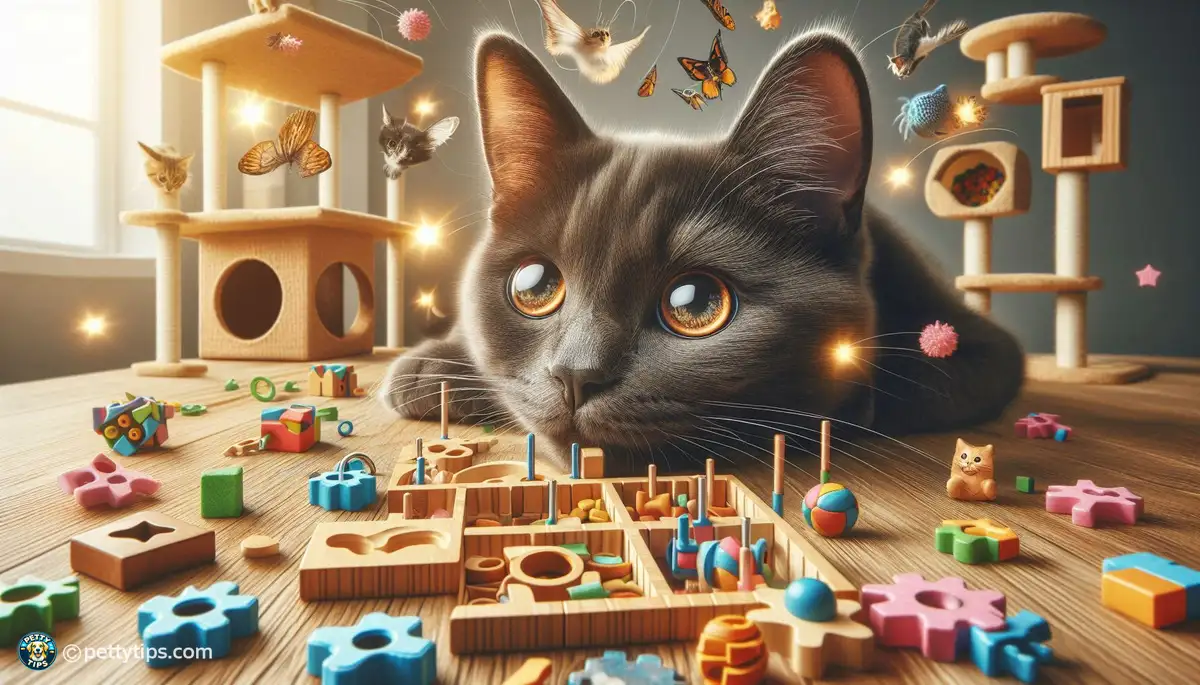
Helping Your Pup Overcome Separation Anxiety: A Guide for Pet Owners
Edward Giddens - Oct 09, 2024 - 6 min read


Pets, much like humans, require mental stimulation to thrive. It's easy to assume that providing for their physical needs is enough, but neglecting their mental well-being can lead to a host of issues. Recognizing the signs that your pet may be lacking mental stimulation is crucial. behavioral changes, excessive chewing or scratching, and even depression can all indicate a lack of mental enrichment. Understanding these signs allows us to take proactive steps to ensure our furry friends lead happy and fulfilled lives.
enrichment activities are essential for keeping our pets' minds engaged. These activities can vary depending on the species and individual preferences of your pet. For dogs, activities such as puzzle toys, scent games, and agility training can provide both mental and physical stimulation. Cats, on the other hand, thrive on activities that mimic their natural hunting instincts, such as interactive toys and vertical spaces to explore. By incorporating these activities into our pets' daily routines, we can help prevent boredom and alleviate stress.
Engaging with our pets in mentally stimulating activities not only benefits their well-being but also strengthens the bond between pet and owner. Spending quality time together, whether it's teaching new tricks, exploring new environments, or simply playing games, fosters a sense of trust and companionship. This bond is essential for creating a harmonious relationship and can help mitigate behavioral issues that may arise from boredom or loneliness.
training sessions are an excellent way to provide mental stimulation for pets while also reinforcing obedience and good behavior. Whether you have a dog, cat, bird, or even a small mammal, basic training commands and tricks can keep their minds active and engaged. Start with simple commands like sit, stay, or come, and gradually introduce more advanced tricks to challenge your pet's cognitive abilities. positive reinforcement techniques, such as treats and praise, will encourage them to continue learning and participating in training sessions.
Outdoor excursions offer a wealth of mental stimulation for pets, allowing them to explore new sights, smells, and sounds. Whether it's a leisurely walk in the park, a hike through the woods, or a trip to the beach, outdoor adventures provide valuable sensory enrichment. For dogs, off-leash play in a safe environment allows them to socialize with other animals and engage in natural behaviors like running and sniffing. Cats can also benefit from supervised outdoor time, such as on a secure harness or in a designated enclosed space, where they can indulge their curiosity and satisfy their instinctual need to explore.
Rotating your pet's toys and introducing new games on a regular basis prevents them from becoming bored with their surroundings. Interactive toys that dispense treats or challenge your pet to solve puzzles are particularly effective at keeping their minds engaged. Similarly, DIY enrichment activities, such as hiding treats in a cardboard box or creating a homemade obstacle course, can provide hours of entertainment and mental stimulation. By offering a variety of toys and games, you can cater to your pet's individual interests and keep them mentally sharp.
Pets that experience separation anxiety often exhibit destructive behaviors, such as chewing furniture or excessive barking, due to stress and boredom. Providing mental stimulation can help alleviate these symptoms by keeping their minds occupied while you're away. Interactive toys, calming music, and pheromone diffusers are all effective tools for reducing anxiety and promoting relaxation. Additionally, gradually desensitizing your pet to your departure cues and establishing a predictable routine can help ease their anxiety over time.
Lack of mental stimulation can contribute to weight gain and obesity in pets, particularly if they resort to overeating out of boredom. To prevent excessive weight gain, it's important to incorporate regular exercise and enrichment activities into your pet's daily routine. Interactive feeding puzzles and slow feeder bowls can also help regulate their food intake and encourage them to eat more slowly. By providing both mental and physical stimulation, you can help your pet maintain a healthy weight and overall well-being.
Destructive behavior, such as chewing, digging, or scratching, is often a sign of pent-up energy and frustration in pets. By addressing the underlying cause of their behavior and providing appropriate outlets for mental stimulation, you can redirect their energy in a positive direction. Providing plenty of toys and activities that mimic natural behaviors, such as scratching posts for cats or chew toys for dogs, can help deter destructive behavior. Consistency and patience are key when training pets to redirect their energy and focus on more appropriate outlets.
In conclusion, mental stimulation is a vital aspect of pet care that should not be overlooked. By understanding your pet's need for mental enrichment and incorporating activities that engage their minds, you can help them lead happy, fulfilling lives. From training sessions and outdoor adventures to novel toys and games, there are countless ways to keep your pet's mind sharp and stimulated. By prioritizing their mental well-being, you can strengthen your bond with your pet and ensure they live their best life possible.